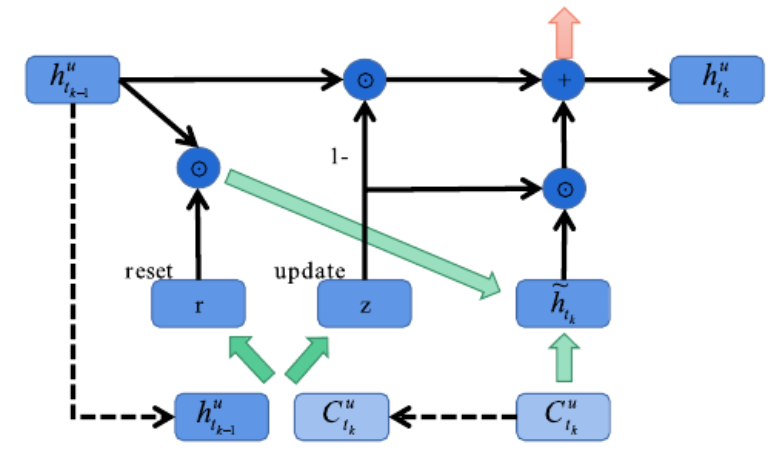An attention-based category-aware GRU model for the next POI recommendation
Abstract:
With the continuous accumulation of users’ check-in data, we can gradually capture users’ behavior patterns and mine users’ preferences. Based on this, the next point-of-interest (POI) recommendation has attracted considerable attention. Its main purpose is to simulate users’ behavior habits of check-in behavior. Then, different types of context information are used to construct a personalized recommendation model. However, the users’ check-in data are extremely sparse, which leads to low performance in personalized model training using recurrent neural network. Therefore, we propose a category-aware gated recurrent unit (GRU) model to mitigate the negative impact of sparse check-in data, capture long-range dependence between user check-ins and get better recommendation results of POI category. We combine the spatiotemporal information of check-in data and take the POI category as users’ preference to train the model. Also, we develop an attention-based category-aware GRU (ATCA-GRU) model for the next POI category recommendation. The ATCA-GRU model can selectively utilize the attention mechanism to pay attention to the relevant historical check-in trajectories in the check-in sequence. We evaluate ATCA-GRU using a real-world data set, named Foursquare. The experimental results indicate that our ATCA-GRU model outperforms the existing similar methods for next POI recommendation.
Bibtex
@article{liu2021attention,
title={An attention-based category-aware GRU model for the next POI recommendation},
author={Liu, Yuwen and Pei, Aixiang and Wang, Fan and Yang, Yihong and Zhang, Xuyun and Wang, Hao and Dai, Hongning and Qi, Lianyong and Ma, Rui},
journal={International Journal of Intelligent Systems},
year={2021},
url={https://doi.org/10.1002/int.22412},
volume = {36},
number = {7},
pages = {3174-3189},
publisher={Wiley Online Library}
}


Leave a Reply